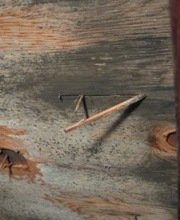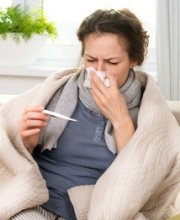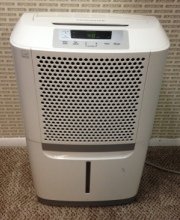Find a Mold Specialist Now
Click or Call, Toll-Free 24/7
Frequently Asked Questions: Mold in the Home
What is mold?
Mold is a type of fungus that can be found both indoors and outdoors. No one knows for sure how many different strains of mold exist but the Centers for Disease Control and Prevention suggests there may be more than 300,000 different kinds of mold out there. In small amounts, most types of mold are harmless. In large amounts, mold can cause health problems such as allergic reactions. Large amounts of mold inside a home can also cause damage to the home itself.
What causes a household mold problem?
The short answer is excessive moisture. That’s why mold is often found in damp basements, under leaky sinks or behind leaky toilets, in attics when the roof leaks, and in homes that have been flooded. Follow this link to learn more about what causes mold.
How can I prevent mold in my house?
Repair any leaky pipes or appliances right away. Repair any leaks in the roof promptly, as well. Use exhaust fans in bathrooms and cooking areas to reduce humidity. If dampness is a problem in any area of the home, install a dehumidifier. Here are more tips on preventing mold.
What kinds of health problems are caused by mold?
Exposure to mold can cause all sorts of health problems. Most common are allergy symptoms, like hives or a rash, and respiratory symptoms, like coughing, sneezing and a runny nose. Mold-related health problems can go far beyond that, though, and can be much more serious. Exposure to mold can cause respiratory infections like pneumonia. It can even cause pulmonary hemorrhage, or bleeding in the lungs, which can be life-threatening. Follow this link to learn more about mold health problems.
How do I know if mold is causing my symptoms?
If you’re sick and you have mold in your home, it is possible mold is causing your symptoms. For a diagnosis, you’ll need to see your doctor. Make sure you let your doctor know you’ve been exposed to mold.
Does mold sickness go away?
Usually, after you’ve received treatment and are no longer exposed to mold, mold-related health problems go away. Occasionally, though, they don’t. Follow this link to learn more about chronic mold-related illness.
Can mold make my pets sick?
Exposure to mold can make pets sick as well as people. Due to their small size, however, pets may become very ill even when exposed to relatively small amounts of mold. See your vet right away if you think mold might be making your pets sick. Follow this link to learn more about mold and pets.
How do I know if I have mold in my home?
You may be able to see it. Mold sometimes grows in hidden places, though, so you might have to look for it. It’s not always obvious. Mold remediation specialists will often offer free home inspections. You can also hire a certified mold tester to test the air in your home. Follow this link to find certified mold testers in your area.
Where should I look for mold?
Look in basements, attics and crawlspaces, areas that may be damp and where you might not notice mold simply because you don’t go there often. Look under sinks, behind toilets and around washing machines, places where water leaks might develop. It may also be necessary to look in harder-to-access areas, like inside heating, ventilation and air conditioning ducts, inside walls, and under floor boards.
If you find mold in one area of the home, you should do a thorough inspection of the rest of the home because mold spreads easily from one area to another. If you need help looking for mold, follow this link to find mold removal professionals offering free home inspections in your area.
Can I clean up mold myself or do I need to hire a professional?
The Environmental Protection Agency (EPA) recommends hiring a professional if:
- Mold covers an area greater than 10 square feet
- Mold results from water that may be contaminated by sewage or other hazardous substances
- You have mold in your heating, ventilation and air conditioning system
- You have health problems that may be made worse by contact with mold
Otherwise, you can tackle the cleanup yourself if you prefer. Make sure you use the appropriate protective gear so you don’t get ill from increased exposure to mold and that you take the appropriate steps to prevent inadvertently spreading mold to other areas of the home during the cleanup process.
If you need help with mold removal, follow this link to find qualified mold removal professionals in your area.
How much does mold removal cost?
It varies depending on a number of factors, including the amount and location of mold to be removed. It might be as little as a few thousand dollars or as much as $20,000. We’re just not able to be more exact. You can, however, get a free estimate from an experienced mold remediation professional, who will visit your home and offer a free inspection and consultation. Follow this link for more information or to schedule your free in-home consultation.
Will my homeowner’s insurance pay for it?
Maybe. Homeowner’s insurance usually only pays for mold removal if the mold results from a covered event. For instance, if your insurance covers flooding and mold develops as a result of flooding, your insurance company will probably pay for the mold removal. If you don’t have flood insurance, though, and mold develops as a result of flooding, your insurance probably won’t pay for it. Review your policy or call your insurance agent for more information.
I live in an apartment. Is my landlord responsible for mold removal?
Maybe. It depends on the applicable laws in your state and perhaps on the terms of your lease, as well. The Centers for Disease Control and Prevention (CDC) recommends contacting your state or county department of health for more information. You may also wish to consult an attorney for legal advice specific to your situation.
Please feel free to email us if you have questions we haven’t answered. We’ll do our best to get you the answers you need!
Return From Frequently Asked Questions About Mold To Home Page
Ref: EPA
Privacy Policy Terms and Conditions Accessibility Do Not Sell My Information Disclaimer Contact Us





